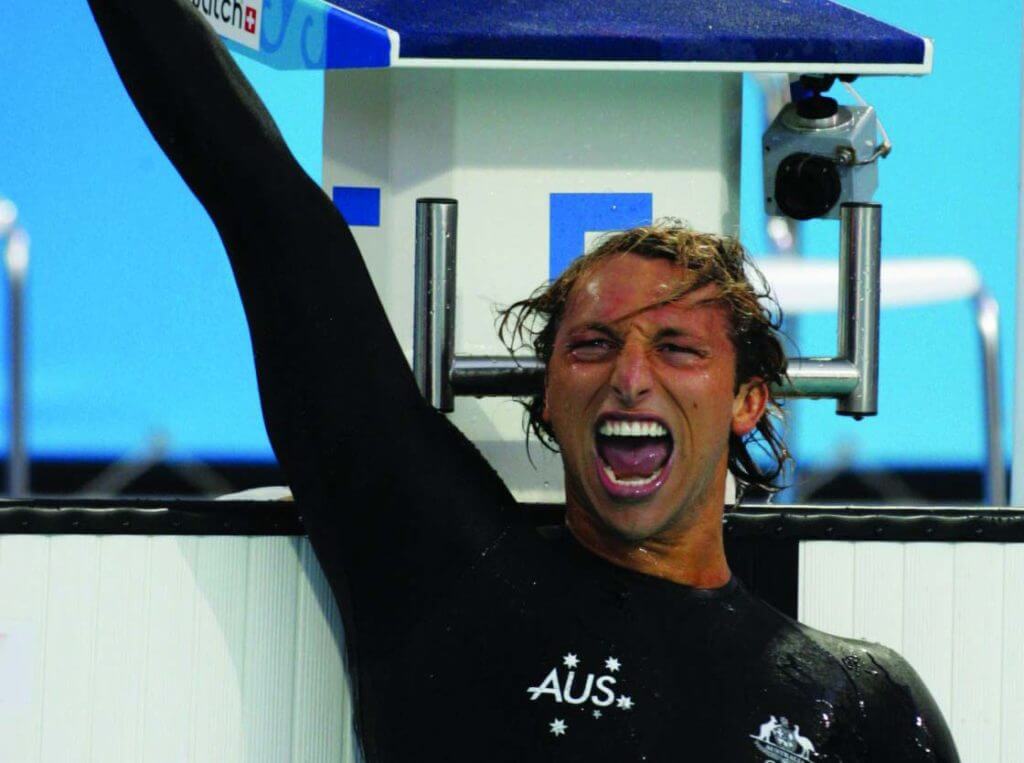Celebrating Pride Month: Five LGBTQIA+ Aquatic Athletes

Celebrating Pride Month: Five LGBTQIA+ Aquatic Athletes
As we are in the middle of Pride month, it is important to recognize and celebrate notable members who are a part of both the aquatic sports and LGBTQIA+ community on their accomplishments and pride in their identity. Sharing the stories of those who identify with these communities can help others in aquatics to feel comfortable and safe coming out like the role models before them. Here are five aquatic athletes who have taken pride in their identity.
1. Lia Thomas
Thomas was a recent swimmer on the University of Pennsylvania swimming team, winning the first NCAA Division I title for a transgender athlete. She began swimming on the men’s team as a freshman, holding top speeds in the men’s 500 free, 1000 free, and 1650 free. She began her transition in 2019 while continuing to swim for the men’s team. In 2021, she was able to join the women’s swim team at UPenn. This past March, in her final collegiate swimming event, she won the women’s 500 free with a time of 4:33.24. This was a significant moment for trans athletes, yet Thomas has been in the news frequently over the debate if it was fair to have someone who was male at birth swim against women, claiming she has a biological advantage.
Swimming World has taken the stance that Thomas should not have competed at the NCAA Championships due to the advantages she held from male puberty, yet is supportive of Thomas for being true to her identity. More, Swimming World believes Thomas should be afforded competitive opportunities, just not at the expense of biological women. Thomas plans to continue her swimming career and swim in the 2024 Olympic Trials.
2. Ian Thorpe
Thorpe is Australia’s historically most accomplished men’s swimmer, winning five Olympic gold medals and 11 world titles between 1998 and 2003. He retired from swimming in 2006 after battling injuries and depression. He came out as gay in 2014 during an interview with Michael Parkinson, although he stated he knew about his sexuality during his swimming career.
3. Ana Marcela Jesus Soares da Cunha
Cunha is a Brazilian swimmer who won gold in the 2020 Olympics women’s 10 km. She also has eleven medals from the World Championships and has been titled the Greatest Open Water Swimmer Award in 2010, 2014, 2015, 2017, 2018, and 2019. She is an open member of the LGBTQIA+ community and posts on social media frequently advocating for the community along with her fiancee, Diana Abla, who was a member of Brazil’s water polo team.
4. Mark Tewksbury
Former Canadian competitive swimmer Mark Tewksbury is a decorated swimmer most known for his gold medal in the 1992 Olympics in the 100 backstroke and is in both the Canadian Sports Hall of Fame and International Swimming Hall of Fame. After retirement, he became a representative for the International Olympic Committee, until leaving this position due to indictments of corruption in the IOC. He came out as gay in December of 1998, causing him to lose a contract as a motivational speaker. He continues to advocate for global gay rights and stands on the board of the Gay and Lesbian Athletics Foundation.
5. Theresa Goh
Singaporean swimmer and Paralympic medalist Theresa Goh has congenital spina bifida prohibiting the use of her legs, yet this has not stopped her from being a successful athlete and advocate for both LGBTQIA+ rights and disability awareness. In the 2016 Paralympics, she won bronze for the SB4 100m breaststroke, a breaststroke division in the Paralympics for athletes with motor control limited in their lower body. She is openly gay, which is uncommon for many athletes in Singapore, and since her retirement has worked to create more representation for the LGBTQIA+ and disabled communities in Singapore through a YouTube channel she shares with her girlfriend.
While this is just a short list, there are even more influential LGBTQIA+ aquatic athletes, whether professional or amateur, who can continue to be advocates and create change in the community. While there is still much progress to be made for LGBTQIA+ rights in the aquatic sports community and beyond, people like those in the list above help the world progress further into acceptance and representation. For more help for American athletes, visit USA Swimming’s LGBTQ Resources. Happy Pride Month.
All commentaries are the opinion of the author and do not necessarily reflect the views of Swimming World Magazine nor its staff.




I am homosexual but the ‘LGB etc’ thing disgusts me. Bit by bit they are invidiously adding a letter to the nonsense. LGBTQIA+ ? Can they actually qualify the differences between some of these? As for those that are not connected to sexuality – in the 80s and 90s the ‘T’ were quite vehement about not being included with L,G,B. I was there! What next?….Why not go the full hog and agree with that person on You Tube who says there are 63 genders?
Oh John, diversity disgusts you? That’s what you are saying, basically. And that is what the media and everyone else was saying about us in the 50’s and 60’s. All the additions mean is that we want to be inclusive of people who share some of our values…as I traveled in a India a few years ago, I realized and learned about the intersex and hijra communities—it was wild! I agree that it is confusing and you might go out and buy a book to learn just how varied we are. I might suggest the Oxford University Press publication, Trans Bodies, Trans Selves. Think of it as the new Our Bodies, Our Selves, or the Joy of Gay Sex, but a resource for trans people—and the rest of us who want to understand them. Additionally, I too thought it was confusing at first, so I bought the book. Another resource is http://www.genderqueerid.com